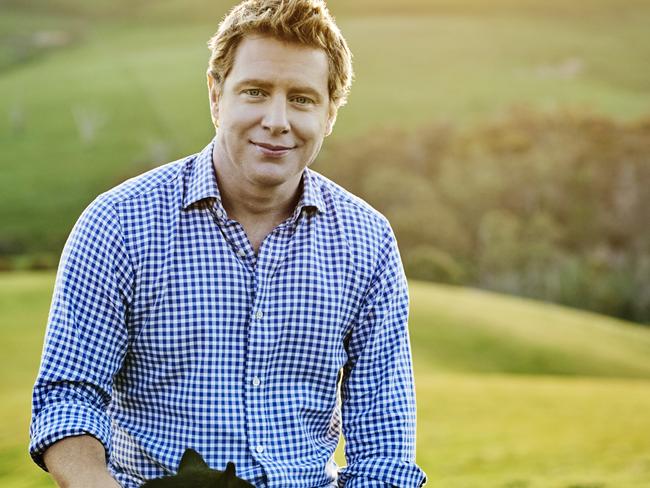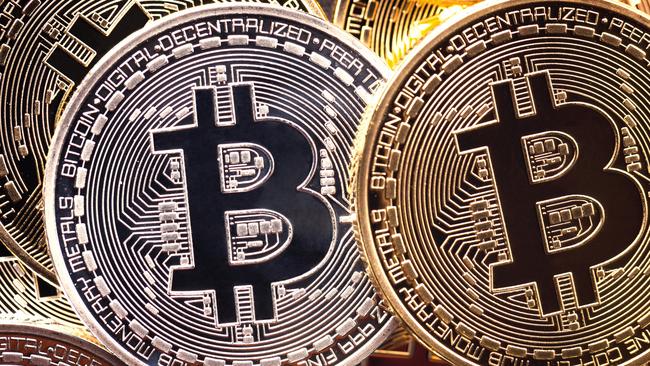Barefoot Investor: The devil with protected equity loans
DEALS from banks enticing young couples to borrow may look like the best offer since sliced bread, but there’s no such thing as a free lunch. Barefoot Investor Scott Pape shows you how to avoid falling into the banks’ borrowing trap.
Barefoot Investor
Don't miss out on the headlines from Barefoot Investor. Followed categories will be added to My News.
DESPITE how it looks, there’s no such thing a free lunch – so beware of bank offers that look too good to be true. Barefoot Investor Scott Pape explains what to be careful of when investing in the share market.
ANGIE ASKS: My partner and I are quite young (both 28) and have bought our first home already.
We are now looking to invest in the share market, and would like to take out a “protected equity loan” to do so.
Yes, the cost of it is high, but after that you own the asset.
We are in it for capital growth over time, so we can accept breaking even for 10 years or so, particularly with the potential for tax minimisation. The trouble is, I know you do not think highly of this product. Could you please explain why?
BAREFOOT REPLIES: On first glance these things look like the best thing since sliced (gluten-free) bread.
Here’s how Westpac describes its protected equity loan:
“The potential of Australian shares. The certainty of capital protection at maturity.”
Let’s say you take out a Westpac protected equity loan of $1000 and invest in an Aussie share fund.
If in five years’ time the shares are worth less than $1000, all you need to do is hand them back to Westpac, and just walk away Renee (or Angie — word up to those ’90s kids who got that music reference).
Hot diggity dang! Who doesn’t want the potential of shares with the certainty that you won’t do your dough?
Sign me up!
Trouble is, there’s no free lunch in the stock market, and Westpac sure ain’t handing out gluten-free dinner rolls.
The devil with these loans is the interest rate you’re charged. Westpac builds in the cost of the capital protection (otherwise known as a “put option”), then adds a bit of gravy.

How much gravy?
Well, Westpac charges an interest rate of 8.95 per cent.
“Troi oi!”, as my Vietnamese friends say.
Bottom line?
These fancy loans are dreamt up by bankers and flogged by financial planners with one goal: to make them fat ongoing fees … not to help you.
I’ve been Barefoot for years now, and I’ve come to understand a few things:
First, most people make dumb decisions just to save tax.
Second, most people don’t have the ticker to invest in the market with their own money, let alone with borrowed money.
Third, most people borrow at the wrong time. Like right now, when the market has been going up for over a decade and everything appears “safe”.
The time to go “balls in” (as my father would say) is straight after a crash, precisely when no one wants to invest in the share market.
So what should you do?
Stick to the Barefoot Steps.
You’ve bought your home at a young age — well done!
That’s Step 4 done and dusted.
Now it’s time to move on to Step 5 and increase your super contributions from the basic 9.5 per cent (paid by your employer) to 15 per cent by salary sacrificing some of your pay packet (up to the $25,000 cap per person per year).
This has two benefits:
You’ll get a genuine tax deduction (possibly slashing your top marginal tax rate by almost two-thirds) and, if you choose a super fund with ultra-low costs, your returns won’t be eaten away by some banking fairy.
DON’T GET BITTEN ON BITCOIN
LLOYD ASKS: I have just bitten the bullet and invested in Bitcoin (and it has been a wild ride over the past week!).
Judging from what the experts suggest, the price could hit $60,000. This got me thinking — what tax will I pay on my gains?
BAREFOOT REPLIES: If your purchase of Bitcoin was under $10,000, and you’re only using it to pay for goods or services, any capital gain you make will be tax free because the Tax Office considers it a “personal use asset”.
However, you’re speculating (i.e. hoping to ‘get rich or die tryin’, as Fiddy Cent says), so you’ll pay tax on any capital gain at your marginal tax rate.
Having said that, if you hold on for at least 12 months, you’ll be able to claim a 50 per cent capital gains tax discount.
Even though the Tax Office can’t track Bitcoin, they still want their share of any capital gain you make. So make sure you keep good records (transaction dates, how much you invested, the price you bought and sold for) in case you get audited.
Finally, if you cop a loss on your Bitcoin, you can use it to offset capital gains made that year, or you can carry it forward to offset against gains made in the future. (Losing money on Bitcoin? That’s never going to happen, right?)

FOSSIL FOOLS
DEB ASKS: While I have not read your book, I am aware that you promote the idea of using ING to set up various bank accounts to manage personal finances.
Are you aware that ING has $857 million invested in fossil fuels? Do you take the environment into consideration when giving money advice? I look forward to your response.
BAREFOOT REPLIES: I wasn’t aware of that.
That said, I don’t think any bank is squeaky clean … that’s why they’re having a royal commission, right?
Personally, I get more bent out of shape that ING tries to upsell their customers to a sleazy credit card. (Though that may just be me.)
Anyway, if you’re wanting a bank with an ethical charter, check out ME Bank, which has pledged to avoid fossil fuel investments. However, one of the owners of ME Bank is Hostplus, which serves the gambling industry. Pick your poison!
SANTA SUGGESTIONS
CHRISTMAS shopping sucks, right? Not for me. Years ago, I cracked the Christmas shopping code: buy people books.
They’re the ultimate present, they cost under $30, they don’t need a separate card (I simply scribble a Merry Christmas message on the inside cover), and my local bookstore will even gift wrap them for me. Job done!
Here are the books I’ve got in my Santa sack this year.
How to Get Rich: Felix Dennis started out with nothing and rose to become one of the wealthiest men in Britain. Then he died of cancer from smoking too many cigars. Several years before sucking his last stogie, he sat down in one of the most expensive homes in Europe and wrote How to Get Rich.
It’s vulgar, manic, cutthroat, and one of the most brutally honest accounts of what it really takes to build a fortune. And what you have to give up to do it ...
Dump the Bump when saving for kids
Super satisfaction in a life worth saving for
Gift guide: The best books for Christmas presents

Raising Boys: OK, so this one doesn’t have much to do with finance, but I’ve got two boys … and a baby is due in a few weeks (and no, we haven’t googled what we’re having).
Anyway, there’s a reason that Steve Biddulph’s Raising Boys has sold over a million copies, and that’s because boys are crazy and we parents need all the help we can get. This book navigates you through the testosterone-charged challenge of growing great boys. It’s helped me a lot. I’ve Got This!
And last, you guessed it, I’ll be giving away my own book: The Barefoot Investor: The Only Money Guide You’ll Ever Need.
(Side note: at wileycompetitions.com/barefoot, my publisher is running a little promo where they’re offering $5000 in Mojo to one person who buys the book in December.)
I estimate that 80 per cent of the sales so far have been from people giving it to family and friends.
Why? Because the Barefoot Steps work, and they keep you safe. And that’s a pretty cool Christmas present to give, right?
Tread Your Own Path!
The Barefoot Investor holds an Australian Financial Services Licence (302081). This is general advice only. It should not replace individual, independent, personal financial advice
If you have a burning money question, or you want to win a fight with your spouse, go to barefootinvestor.com and ask a question.


